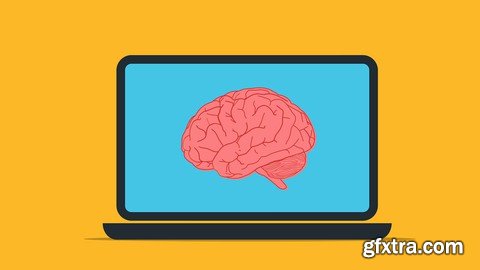
Welcome to our Machine Learning Projects course! This course is designed for individuals who want to gain hands-on experience in developing and implementing machine learning models. Throughout the course, you will learn the concepts and techniques necessary to build and evaluate machine-learning models using real-world datasets. The course is divided into several modules, each covering a different aspect of machine learning. The first module will cover the basics of machine learning, including supervised and unsupervised learning, and the types of problems that can be solved using these techniques. You will also learn about common machine learning algorithms, such as linear regression, k-nearest neighbors, and decision trees. ML Prerequisites Course Python Crash Course: It is an introductory level course that is designed to help learners quickly learn the basics of Python programming language. Numpy: It is a library in Python that provides support for large multi-dimensional arrays of homogeneous data types, and a large collection of high-level mathematical functions to operate on these arrays. Pandas: It is a library in Python that provides easy-to-use data structures and data analysis tools. It is built on top of Numpy and is widely used for data cleaning, transformation, and manipulation. Matplotlib: It is a plotting library in Python that provides a wide range of visualization tools and support for different types of plots. It is widely used for data exploration and visualization. Seaborn: It is a library built on top of Matplotlib that provides higher-level APIs for easier and more attractive plotting. It is widely used for statistical data visualization. Plotly: It is an open-source library in Python that provides interactive and web-based visualizations. It supports a wide range of plots and is widely used for creating interactive dashboards and data visualization for the web. ML Models Covered in This Course Linear Regression: A supervised learning algorithm used for predicting a continuous target variable based on a set of independent variables. It assumes a linear relationship between the independent and dependent variables. Logistic Regression: A supervised learning algorithm used for predicting a binary outcome based on a set of independent variables. It uses a logistic function to model the probability of the outcome. Decision Trees: A supervised learning algorithm that uses a tree-like model of decisions and their possible consequences. It is often used for classification and regression tasks. Random Forest: A supervised learning algorithm that combines multiple decision trees to increase the accuracy and stability of the predictions. It is an ensemble method that reduces overfitting and improves the generalization of the model. Support Vector Machine (SVM): A supervised learning algorithm used for classification and regression tasks. It finds the best boundary (or hyperplane) that separates the different classes in the data. K-Nearest Neighbors (KNN): A supervised learning algorithm used for classification and regression tasks. It finds the k nearest points to a new data point and classifies it based on the majority class of the k nearest points. Hyperparameter Tuning: It is the process of systematically searching for the best combination of hyperparameters for a machine learning model. It is used to optimize the performance of the model and to prevent overfitting by finding the optimal set of parameters that work well on unseen data. AdaBoost: A supervised learning algorithm that adapts to the data by adjusting the weights of the observations. It is an ensemble method that is used for classification tasks. XGBoost: A supervised learning algorithm that is an extension of a gradient boosting algorithm. It is widely used in Kaggle competitions and industry projects. CatBoost: A supervised learning algorithm that is designed to handle categorical variables effectively.

2023_Python_for_Machine_Learning_&_Data_Science_Projects.part2.rar
2023_Python_for_Machine_Learning_&_Data_Science_Projects.part3.rar
2023_Python_for_Machine_Learning_&_Data_Science_Projects.part4.rar
2023_Python_for_Machine_Learning_&_Data_Science_Projects.part5.rar
2023_Python_for_Machine_Learning_&_Data_Science_Projects.part6.rar
Top Rated News
- Sean Archer
- AwTeaches
- Learn Squared
- PhotoWhoa
- Houdini-Course
- Photigy
- August Dering Photography
- StudioGuti
- Creatoom
- Creature Art Teacher
- Creator Foundry
- Patreon Collections
- Udemy - Turkce
- BigFilms
- Jerry Ghionis
- ACIDBITE
- BigMediumSmall
- Boom Library
- Globe Plants
- Unleashed Education
- The School of Photography
- Visual Education
- LeartesStudios - Cosmos
- All Veer Fancy Collection!
- All OJO Images
- All ZZVe Vectors



